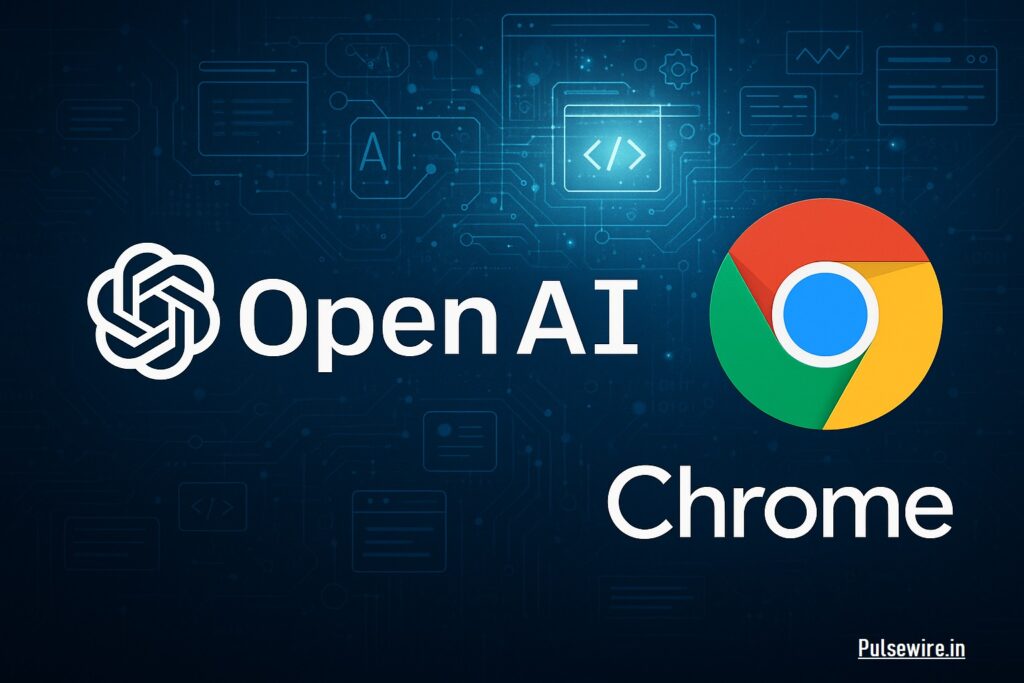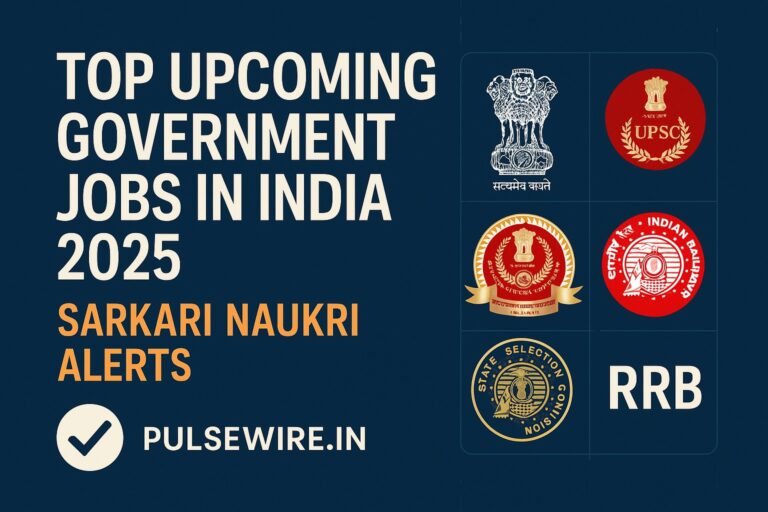Expertly written and fact-checked by the Pulsewire Tech & AI Desk | Delivering insights at the intersection of artificial intelligence and everyday tech.

Is Google Chrome finally about to face real competition? According to multiple reports, OpenAI—the AI powerhouse behind ChatGPT—is preparing to launch a dedicated AI-powered web browser. This potential leap signals a major shift in how people might experience the internet in the near future.
🚀 What’s Reportedly Coming?
Reuters and The Information have both cited insider sources suggesting OpenAI is developing a browser that will deeply integrate artificial intelligence into every aspect of web browsing. The browser could feature OpenAI’s AI agent “Operator,” capable of intelligent search, summarization, and task automation directly within the browser experience.
This move would place OpenAI in direct competition with established tech giants like Google, Mozilla, and Microsoft, all of whom are also integrating AI into their products. But OpenAI’s edge lies in its deep AI research and model development expertise.
⚡ Why It Matters: User-Centric AI Innovation
AI browsers are not just about speed or design. They redefine how users find, consume, and interact with information. If OpenAI launches this product, it could:
- Offer Real-Time Summarization: Summarize lengthy web pages or PDFs instantly.
- Enhance Research: Automatically compile credible sources on a topic using natural language input.
- Act as a Co-Browser: Perform tasks like booking tickets, managing emails, or generating responses—all from within the browser.
- Improve Accessibility: Assist users with disabilities using smart voice and text interactions.
🛌 YMYL & E-A-T Considerations
Because web browsers handle sensitive information—banking, healthcare data, passwords—OpenAI must prioritize privacy, security, and user transparency to meet YMYL (Your Money or Your Life) standards. It also needs to demonstrate E-A-T (Expertise, Authoritativeness, Trustworthiness) by:
- Providing clear disclosures on data collection and AI decision-making processes.
- Ensuring that AI-generated answers are accurate, sourced, and up-to-date.
- Allowing users to verify or audit AI-generated summaries using original content.
- Building trust through third-party audits or certifications on privacy practices.
🌐 What About Google Chrome?
Google Chrome controls over 60% of the global browser market. But despite constant updates, it has remained largely unchanged in terms of how users interact with the web. Its strengths:
- Vast extension ecosystem
- Speed and reliability
- Seamless integration with Google Workspace
However, concerns around user tracking, ad targeting, and data monetization have led many to seek alternatives. An AI-powered browser that emphasizes user privacy and efficiency could find quick adoption.
🧬 Could OpenAI Succeed?
While OpenAI has a strong brand in AI, launching and maintaining a browser requires a different kind of infrastructure. Challenges include:
- Security: Ensuring robust protection from cyber threats.
- Performance: Competing with Chrome’s speed and reliability.
- User Adoption: Convincing users to switch from their default browser.
- Regulation: Navigating global rules on data privacy, especially with AI integration.
Still, with ChatGPT’s massive user base, integration into an OpenAI browser could offer a natural transition for millions already relying on AI for everyday tasks.
🕵️ The Bigger Picture
This isn’t just about browser wars. OpenAI’s rumored move represents a deeper trend: the convergence of search, productivity, and AI. Users increasingly expect AI to assist proactively, not reactively—and that shift starts with the tools we use daily.
Whether OpenAI delivers a full browser or a Chrome-based AI extension, the intent is clear: redefine the web as an intelligent assistant, not just a portal.
✅ Conclusion
OpenAI’s AI-powered browser, if confirmed, could spark the next evolution in how we browse, search, and interact online. While Google Chrome isn’t going anywhere soon, it may finally have a worthy challenger.
Users, meanwhile, stand to benefit from smarter, safer, and more intuitive web experiences—as long as companies prioritize transparency, ethical AI, and user control.
Key Takeaways:
- OpenAI is reportedly developing a browser to challenge Chrome.
- Integrated AI features may include summarization, research aid, and real-time assistance.
- Meeting YMYL and E-A-T standards will be crucial for user trust.
- This move could trigger innovation across the browser market.
FAQs
When will OpenAI’s browser launch? Reports suggest it could launch in late 2025, but no official timeline is confirmed. Will it replace ChatGPT? No, it is likely to work alongside ChatGPT as a broader platform for AI-assisted browsing. Is it safe to use an AI browser? That depends on how privacy, encryption, and data handling are implemented. Transparency will be key.
Also Read:
- Will AI Control Humans in the Future?
- AI Tools for Students: Best Free Study & Productivity Apps in 2025
- AI Code Assistants Are Reshaping the Developer World in 2025
Sources & References:
Disclaimer: This article is based on current reports and should not be taken as official product confirmation. Always consult trusted sources for finalized details.









